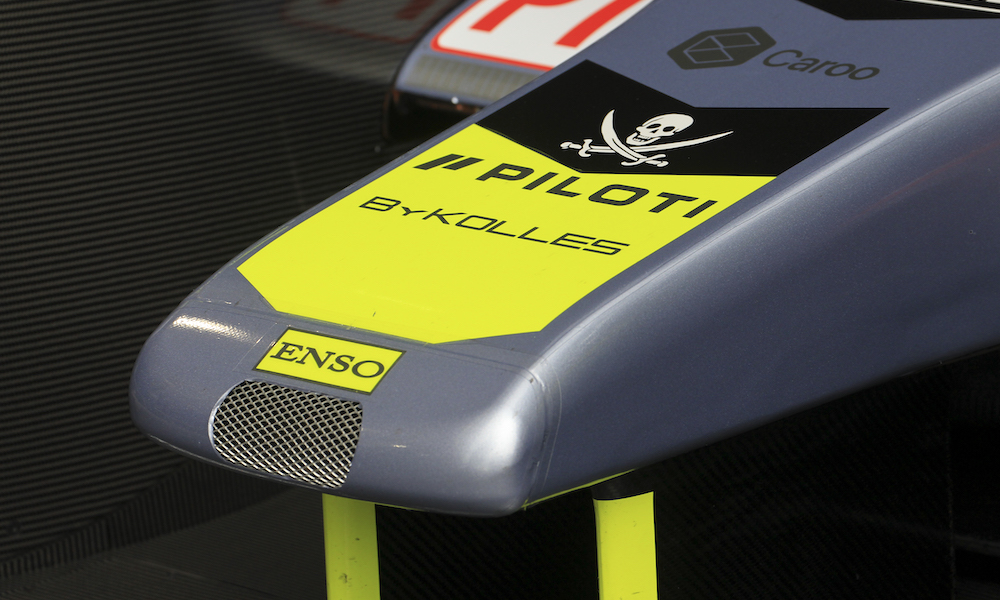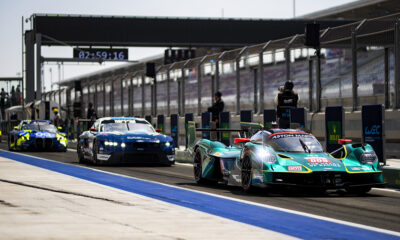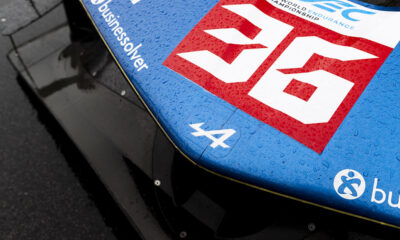
Photo: MPS Agency
ByKolles Racing is set to use a Gibson LMP1 engine for its non-hybrid Le Mans Hypercar, which remains in development ahead of its FIA World Endurance Championship debut.
The experienced LMP1 constructor’s plans to build a car to the LMH regulations first emerged in December 2018, while it presented an image of the vehicle in February last year, but few details have been shared since then.
Team owner Dr. Colin Kolles told Sportscar365 that the program is still active but explained that regulation changes have impacted the flow of the development.
He said that Aston Martin’s commitment to the class last June with its 1,160 hp Valkyrie hypercar meant that ByKolles had to abandon the Gibson V8 for a more powerful unit.
However, Aston’s subsequent withdrawal and the recent news that LMH power levels will be reduced to match LMDh cars have enabled ByKolles to stick with its original plan.
The Gibson GL458, which produces around 700 hp, is the same V8 engine that currently powers the Austrian-flagged team’s ENSO CLM P1/01 prototype in the LMP1 class.
“It’s quite operational. It would fit in the current [Hypercar] regulations, as they look to me, as of today,” said Kolles when asked about using the Gibson unit for LMH.
“We made a decision to go with Gibson a long time ago. And then Gibson was put in a situation where the V8 engine was underpowered and a V10 engine was impossible to build in such a short time.
“You have to make a decision. You run with an engine which is down on power, more than 100 hp, or not.
“So we were trying to find a different solution for an engine and there was not really another option. Because our car is built like a Formula 1 car, we need a stressed engine.
“So it’s not like I take an engine from an Alfa Romeo and I put it in the car, because our hypercar philosophy is different to Glickenhaus’ philosophy.
“I think now the regulations are going in a better direction, but it took a very long time. If you are building monocoques and you don’t know where to put the mounting points because you don’t know which engine you are putting in, it’s a little bit difficult.”
Kolles said the hypercar’s development is moving along, in parallel to the ongoing testing of the ENSO CLM P1/01 which is set to race in this year’s 24 Hours of Le Mans.
However, the engine uncertainty resulted in a delay in the delivery of the first monocoque, which was due to arrive at ByKolles’ facility in Germany three months ago.
The hypercar, which does not yet have a name, will be offered in three variants: a competition version for the WEC, a track-day version and a street-legal version.
“We are finalizing the electronics,” explained Kolles.
“We now know which engine we will run, and we know the gearbox and the suspension.
“We are now in phase seven of the hypercar program. It started in phase one, but we are now in phase seven.”
Regulations Clarity Needed to go Racing
The ByKolles hypercar’s race debut is not set in stone, according to Kolles, despite the team’s target of completing the development in time for the start of LMH in March 2021.
Kolles suggested that he wants clarity in the formula’s regulations, bearing in mind the previous delays set on the program, before the car competes in any races.
“The plan is to go racing, but I’m not guaranteeing this because, to be honest, I have to be made happy with the regulations and how people are dealing with us,” he explained.
“If people are not appreciating what we are doing, we don’t have to do it. Because I am not dependent. If the regulations are not clear and OK for us, and if the political surroundings are not correct, then we will not race.
“What we can say is that we will have a hypercar conforming to the Le Mans regulations. This is for sure. The rest, I don’t know. It depends also on third parties, not only on us.”
























